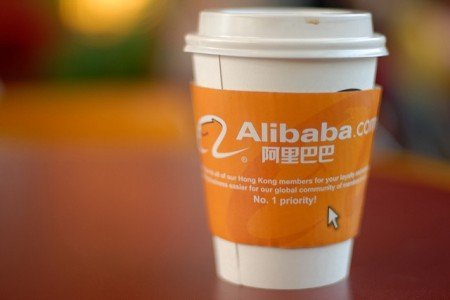World’s trading giant is studying blockchain to adopt it to Alipay service.
Alibaba is reportedly studying blockchain to adopt it to its Alipay service. Alipay is one of the largest online payment platforms in the world. It was launched more than 10 years ago and for this time has got the biggest market share in China with 300 million users and control of just under half of China’s online payment market.
“We are very pleased to partner with United and help them make online booking from China a hassle-free experience. By enabling the option to use China’s most trusted and secure payment system, Chinese travelers using United’s website can expect the safe, easy and consistent experience they have come to expect, while avoiding any currency barriers” – states Alibaba.
Being the world’s largest online business-to-business trading platform for small businesses, Alibaba is always developing. It got interested in the blockchain technology in order to be able to track different parts of this vast business. The company doesn’t provide any confirmed information concerning the possible use of bitcoin. Multiple consumers all over the world ask whether the trading giant is going to start accepting the cryptocurrency. Silence in response can mean that we shouldn’t expect it in the nearest future.
Blockchain is a multifunctional technology. It is mostly known as a decentralized database of bitcoin transactions. However Alibaba can use it for different purposes. It can employ blockchain to create the most convenient cryptographically secured database. Besides everything from inventory, payments, account management and more can be handled with the technology. They are likely to try applying it to such internal uses as employee management and. As for now the company is in the initial discovery phase of the process.
“If the blockchain will be widely used, with more and more financial institutions and commercial organizations applying the technology, ordinary people will participate, which will lead to the storage of information in it. The final value of blockchain is the storage of credit information, which is the heart of business and finance. In the past, we obtained this by ranking the companies. The usage of the blockchain will grow with the transaction records stored in it,” said Alibaba Group Vice President Gao Hongbing.
It already comes as no surprise that large companies, financial institutions and traders, look into the blockchain. Not long ago JPMorgan Chase, the largest US bank by assets, announced its intention to explore the potential of blockchain and at once took considerable actions. It partnered with Digital Asset Holdings in order to start a trial blockchain project aimed at adopting the technology to the banking industry. Now the companies are studying several applications for the technology, including addressing liquidity mismatches in JPMorgan’s loan funds, which normally let investors take out their money at short notice — even though the underlying assets can require much more time to sell.
next